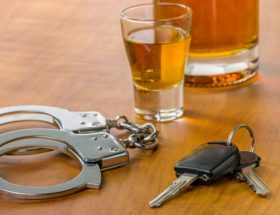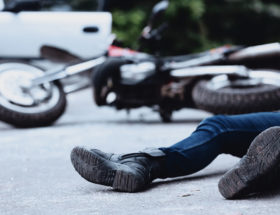
How to Avoid a Bicycle Accident and What to Do When Involved in One
Riding a bicycle offers numerous benefits, ranging from improved physical well-being to reducing your carbon footprint. However, it’s important to acknowledge the associated risks. Each year, countless cyclists are involved in accidents, turning what should be a leisurely ride or daily commute into an emergency situation. The purpose of this guide is to provide you with preventive measures to avoid such incidents, as well as essential steps to take if you find yourself in one. By fostering awareness and preparedness, you can ensure that cycling remains a safe and enjoyable activity.
Precautions to Avoid Bicycle Accidents
First and foremost, prevention is better than cure. Ensuring proper safety while cycling can significantly reduce the likelihood of accidents. Among the precautions you should take include wearing a helmet, using reflective gear for visibility especially at night, and strictly observing traffic rules. In addition, always remain alert to your surroundings and maintain your bicycle regularly. This includes checking the tire pressure, brakes, and lights prior to every ride. These measures not only enhance your safety but also the safety of others sharing the road with you.
For example, a well-maintained bicycle with working headlights and brakes will be more visible to drivers and enable you to stop quickly if the need arises. It is also imperative that cyclists learn and practice defensive riding techniques as part of their regular routine. This means being aware of cars around you at all times, using proper hand signals before making turns, avoiding passing on the right side of cars, and not riding too close to parked vehicles.
Legal Procedures After a Bicycle Accident
Should you be involved in an accident, the first step is to stay calm and assess the situation. Gather information such as contact details of any witnesses and vehicle license plates for insurance claims or legal purposes. It is also important to seek medical attention if needed. Furthermore, bicycle accident liability may be determined through the presentation of evidence such as photographs, video recordings, and police reports. If you are the victim of an accident caused by a motor vehicle, it is important to contact a lawyer who specializes in bicycle accidents as soon as possible. This will ensure that your legal rights are protected and you receive the compensation that you deserve.
Psychological Aftermath and Recovery Post-Bicycle Accident

Experiencing a bicycle accident can leave more than just physical injuries; the psychological impact can be significant and long-lasting. It’s common to feel a range of emotions such as shock, fear, anger, or even guilt. These feelings can linger and potentially lead to post-traumatic stress disorder (PTSD), a serious condition that requires professional intervention. If you find yourself struggling emotionally after an accident, consider seeking help from a mental health professional. It’s also crucial to gradually reintegrate cycling back into your routine to regain confidence. Start with short rides in a safe, controlled environment before venturing onto busy streets. Remember, it’s okay to take it slow and give yourself time to heal both physically and emotionally.
Supporting a Loved One Involved in a Bicycle Accident
If a loved one has been involved in a bicycle accident, your support can make a significant difference in their recovery process. Start by acknowledging their feelings, and refrain from minimizing or dismissing their experience. Encourage them to talk about the incident when they’re ready, and listening empathetically can provide psychological relief. Help them with practical matters such as medical appointments or legal procedures, but also respect their autonomy and decisions.
It is important to practice patience and acknowledge that healing is a process that takes time. Consider joining them on their initial bike rides after the accident to offer a sense of safety and companionship. Your presence, empathy, and patience can have a profound impact on their comfort and recovery.
Community Resources and Support Groups for Bicycle Accident Victims
Being involved in a bicycle accident can be an isolating experience. It’s paramount to remember that you are not alone in this journey. Numerous community resources and support groups are available to provide assistance, advice, and a forum to share experiences with others who have been in similar situations. These entities offer various services, ranging from emotional support and counseling to legal aid and safety training. Connecting with these groups can be a crucial part of your recovery process, aiding in both emotional healing and encouraging a safe return to cycling.
To conclude, being knowledgeable and prepared is integral to ensuring a safe and enjoyable cycling experience. By adhering to safety measures, practicing defensive riding, and maintaining your bicycle, you can significantly reduce the risk of accidents. However, if an accident does occur, it’s crucial to know the legal procedures and understand your rights. Don’t forget the profound effect an accident can have on your mental well-being; it’s okay to seek professional help and take time to heal. Remember, you’re not alone – there are numerous support groups and community resources available to help. Lastly, if a loved one is involved in an accident, your support can make a significant difference in their recovery. Stay safe, stay informed, and let’s make cycling a joy for everyone.









